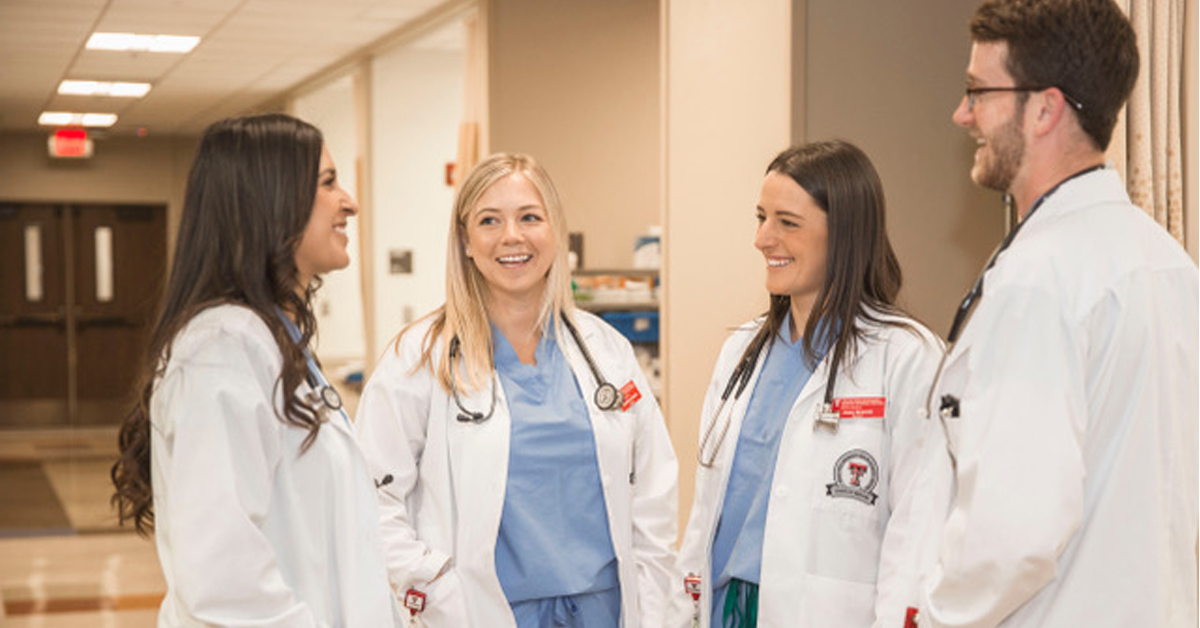TTUHSC School of Medicine Named Bright Spot for Future of Family Medicine

The American Academy of Family Physicians (AAFP) recently reported trends in U.S. medical schools’ contributions to the family medicine workforce naming the Texas Tech University Health Sciences Center (TTUHSC) School of Medicine as a Bright Spot ranking in the top 8 of allopathic schools that provide long-term contributions to the family medicine workforce.
According to a recent AAFP report, the U.S. needs more family physicians. Projections based on current trends show a deficit of 52,000 primary care physicians by 2025. The article stated that multiple studies demonstrate where the ratio of primary care physicians to other specialists is higher, quality of care improves and costs go down.
The report, “Trends in U.S. Medical School Contributions to the Family Physician Workforce: 2018 Update from the American Academy of Family Physicians,” stated national organizations have set an ambitious goal of increasing the proportion of U.S. medical school graduates who enter family medicine residencies to 25 percent by 2030.
The TTUHSC School of Medicine was listed nationally within the top 20th percentile for total graduates entering into Accreditation Council for Graduate Medical Education – accredited family medicine residency programs over the past seven years.

In 2010, the TTUHSC School of Medicine created the first three-year medical degree approved by the nationally recognized accrediting authority for medical education. The Family Medicine Accelerated Track (FMAT) program allows primary care students to complete their degree in three years at about half of the cost of the standard four-year program. The first FMAT class completed their family medicine residency training in 2016.
“The TTUHSC School of Medicine’s early adoption of an accelerated pathway opened a new road for the institution as a leader in curricular innovation,” said Steven Berk, M.D., TTUHSC executive vice president, provost and dean of the School of Medicine. “The road ahead for medical education is likely to be linked less to time than to demonstrating proficiency in communicating with and caring for patients, and FMAT is one vehicle on that road.”
Related Stories
Celebrating Veterans: TTUHSC’s General Martin Clay’s Legacy of Service and Leadership
From his initial enlistment in the Army National Guard 36 years ago to his leadership in military and civilian health care management roles, Major General Martin Clay’s career has been shaped by adaptability, mission focus and service to others.
Texas Tech University Health Sciences Center School of Nursing Named Best Accelerated Bachelor of Science in Nursing Program in Texas
The TTUHSC School of Nursing Accelerated Bachelor of Science in Nursing (BSN) program has been ranked the No. 1 accelerated nursing program in Texas by RegisteredNursing.org.
TTUHSC Names New Regional Dean for the School of Nursing
Louise Rice, DNP, RN, has been named regional dean of the TTUHSC School of Nursing on the Amarillo campus.
Recent Stories
The John Wayne Cancer Foundation Surgical Oncology Fellowship Program at Texas Tech University Health Sciences Center Announced
TTUHSC is collaborating with the John Wayne Cancer Foundation and has established the Big Cure Endowment, which supports the university’s efforts to reduce cancer incidence and increase survivability of people in rural and underserved areas.
TTUHSC Receives $1 Million Gift from Amarillo National Bank to Expand and Enhance Pediatric Care in the Panhandle
TTUHSC School of Medicine leaders accepted a $1 million philanthropic gift from Amarillo National Bank on Tuesday (Feb. 10), marking a transformational investment in pediatric care for the Texas Panhandle.
Texas Tech University Health Sciences Center Permian Basin Announces Pediatric Residency Program Gift
TTUHSC Permian Basin, along with the Permian Strategic Partnership and the Scharbauer Foundation, Feb. 5 announced a gift that will fund a new pediatric residency.
